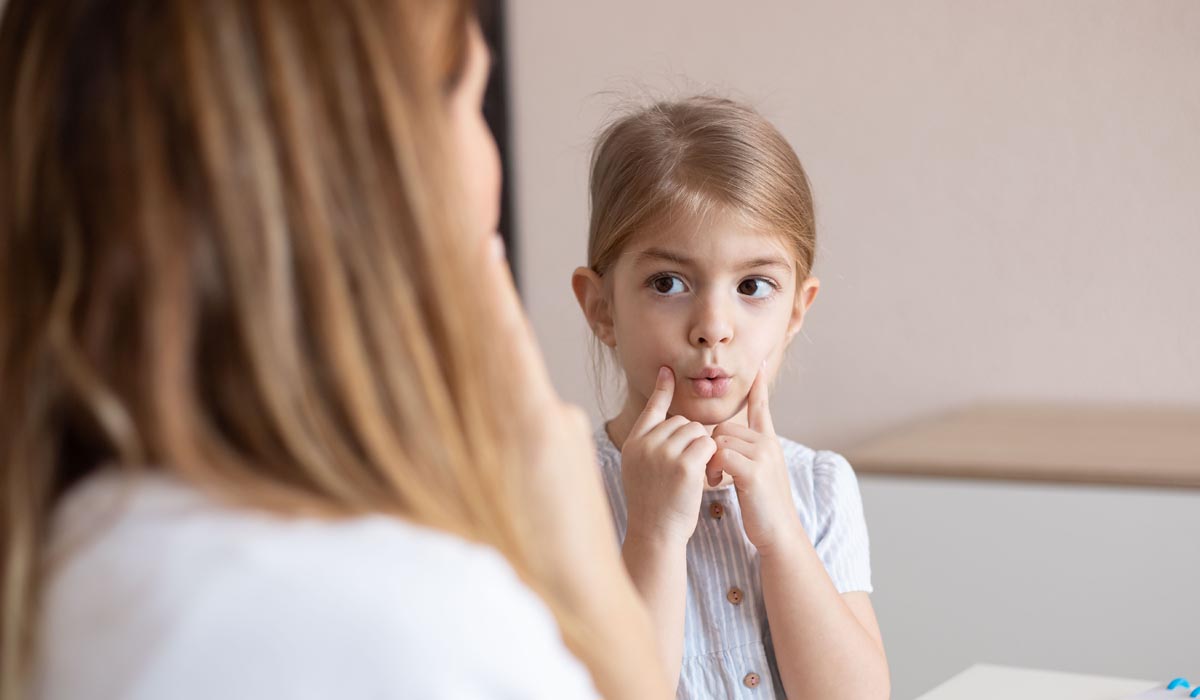✨Book online and enjoy a 5% discount on your first consultation
Home » Speech Therapy Services » Childhood Apraxia of Speech (CAS)

Childhood Apraxia of Speech (CAS)
Childhood apraxia of speech, commonly known as CAS, is a rare speech disorder in children. They are undergoing this disorder face trouble making exact movements and gestures while speaking. The brain struggles to build plans specifically for speech movements. It doesn’t mean that the speech muscles are weak. But they don’t perform conventionally due to the coordinating difficulty of the brain.
Possible Causes
CAS can have a range of possible causes. But in maximum cases, the cause remains undetermined. Generally, neurological disorders occur due to infections, injury, stroke, or traumatic accidents.
This disorder can also develop from the syndrome, metabolic condition, or genetic disease. It is found that children with galactosemia are mostly prone to this disorder. Developmental Apraxia is another name for CAS. However, this does not imply that it has a significant impact on the child’s development. Sound and speech development are slowed in people with developmental problems.
Risk Factors
Abnormalities in the FOXP2 gene are considered to increase the risk of childhood apraxia of speech (CAS). The abnormalities can also cause other speech and language disorders. Research suggests the FOXP2 gene is involved in how certain pathways and nerves in the brain develop.
Signs and Symptoms
Children with CAS might have various speech characteristics or symptoms. However, the symptoms depend on their age and the criticality of their issue. The primary signs that one can spot initially between the periods of 18 months to 2 years are:
Children between 2 to 4 years, when able to form more speech, can also have CAS. The following are the indications of CAS of that particular age group:
Diagnosis
Diagnosis of CAS is based on observation. The speech pathologists review the child’s symptoms and medical history. They may also examine the muscles used for speech and the way the child produces sounds, phrases, or words.
Treatment Options at 7DMC
To resolve the problem of CAS, the most advanced therapies are used by our expert panel. Hearing exams, speech evaluations, and oral-motor assessments are all part of the treatment. As per the diagnosis, therapies are chosen among the following:
Speech Practicing at Home: Home is the best space to begin with. 5 minutes of speech practice twice a day can bring lots of improvements.
Alternative Communication Methods: For severe cases, our doctors recommend alternative communication methods. Things including sign language or any natural gestures help a lot.
Every parent waits eagerly to hear their child’s first word. While it can be a bit delayed, but it is possible. We here intend to turn all those dreams into truth. Our experts try hard to understand the root cause of the issue. And practice the most beneficial exercise to help your child talk without any hurdle.
This is a lengthy process that needs ongoing efforts. This is why our experts stay in constant touch with you that give you’re the opportunity to consult us whenever you want. You can book any of our therapies after the diagnosis. We even exercise occupational therapy for children for their healthy growth in all areas.
Complete recovery from CAS is rare. However, most children with CAS get significantly improved with the help of qualified professionals. Experts recommend getting 3-5 sessions a week to faster improvement.
Experts distinguish CAS from other speech disorders by observing the difficulty of moving from sound to sound or syllable to syllable. Long pauses between sounds and syllables are another distinct feature.
Children with CAS have voicing errors, where they are unable to separate two rhyming words. For example, the word “pie” may sound like “bye.” Children also have voice distortions.
Near Dubai Miracle Garden,
Diamond Business centre A,
1st Floor,
Arjan, AI Barsha,
Dubai.
WhatsApp us